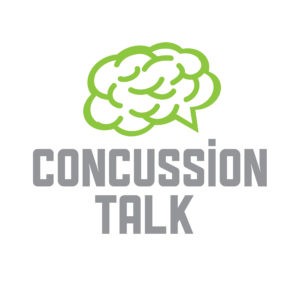From a 41 year old in his 20th season to a 25 year old in his 2nd. The secret to concussion prevention hasn’t been found in  experience, age, athleticism or stubbornness.
Awareness won’t eliminate concussions either, but it will help to reduce the likelihood of longer-term brain injury. First concussion: bad, second concussion: exponentially worse. Austin Collie, 25, wide receiver for the Indianapolis Colts, finished his 2nd season on week 15. Brett Favre, 41, quarterback for the Minnesota Vikings, finished his 20th season and ended his consecutive start streak at 297 games, also finished his season on week 15.
Favre’s streak ended on week 13 due to a shoulder injury, severe enough to end his ironman streak that had so many commentators competing to laud him. A common praise was for his child-like enthusiasm for the game even in his 20th season in the NFL (often given as a reason for his ironman streak). Ironically, that child-like enthusiasm may also be the reason he finally ends his career. Â (Granted, it won’t be long into the 2011 regular season that he turns 42 and he had a statistically poor season, but the man’s tendency to stick around is legendary.) Paying no attention to logic, he came into the week 15 game – if for no other reason than to prove to himself that he could – and in the second quarter his season and his career (or so he says now)Â came to an end following a concussion that even Favre, in all of his stubbornness, could recognize was serious enough to prevent him from playing in the Vikings final two games.
But, he’s 42, an antique in the NFL. Austin Collie is only 25, in only his second season. Nevertheless, he too was out in week 15 after his second concussion of the season. Earlier in the season, Collie missed 3 straight games due to concussion, then in his first game back, suffered another concussion, ending his season with longer-lasting effects on his career. Collie’s situation should not be glossed over. A young, talented receiver with two brain injuries in a matter of weeks. The silver lining may be the timing of the second concussion – since it happened toward the end of the season and since the Colts lost their first round playoff game, he can take more time to recover before he feels pressure to play at the beginning of the season.
Whether it’s an experienced quarterback seemingly immune to injury, or a receiver two years into his career, head injuries in football don’t discriminate. Their prevalence in contact sports is obvious. Concussions should be seen not as a ‘risk’ in contact sports and not quite an inevitability either, but is important that they be recognized as part of the game that cannot be ignored.

March 2, 2011
That is the suitable blog for anybody who needs to seek out out about this topic. You understand so much its nearly arduous to argue with you (not that I actually would needÂ…HaHa). You definitely put a new spin on a subject thats been written about for years. Nice stuff, simply great!
March 2, 2011
Thank you!
March 2, 2011
WONDERFUL Post.thanks for share..extra wait .. Â…
March 3, 2011
The scientist’s inquiry into the causes of things is providing an ever more extensive understanding of nature.
March 16, 2011
Very fantastic publish that is a bookmark worth. I will vist your website regulary now.
April 3, 2011
Nice article, thanks. I really love it. http://www.apnatorrents.com/download-the-potty-book-for-girls-pdf-torrent.html
April 5, 2011
We have bookmarked that for you so that others will be able to see what you have to say.
April 5, 2011
Can I quote you on my website if I link back to your blog?
April 5, 2011
Mark Twain~ A man with a new idea is a crank – until the idea succeeds.